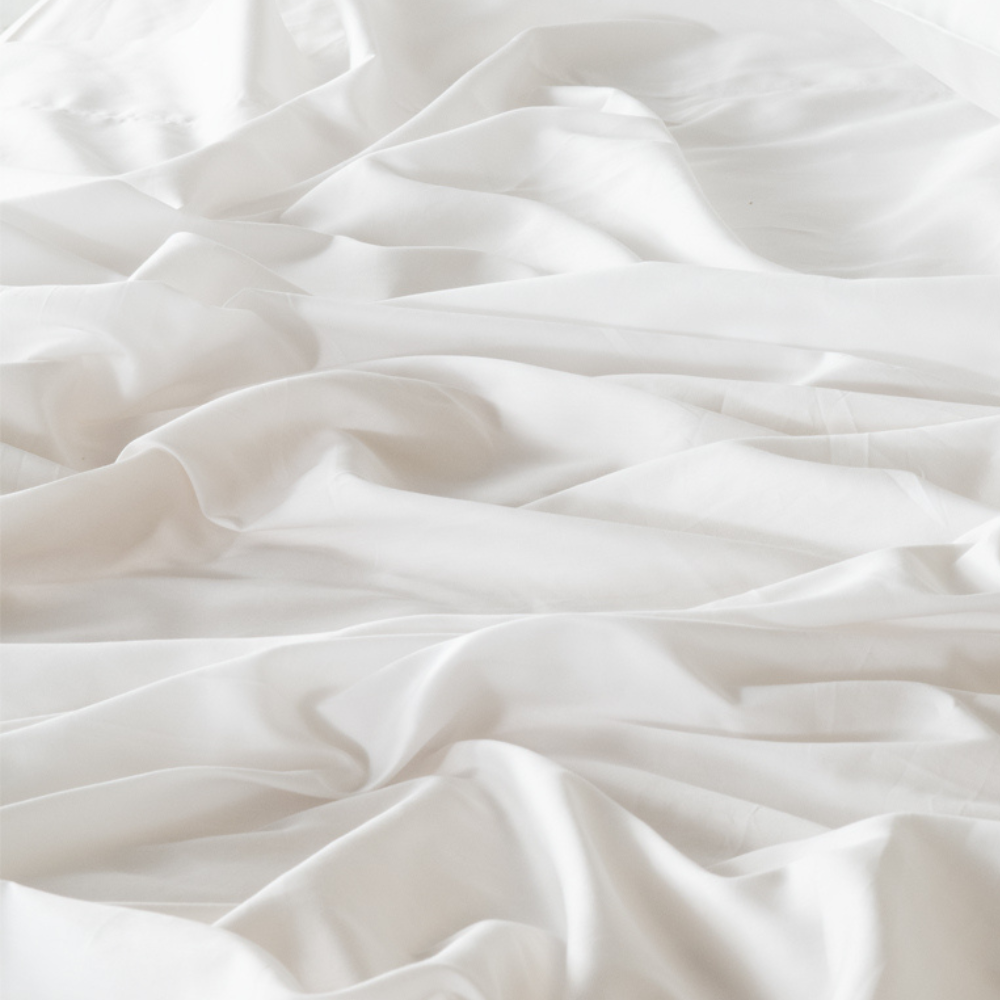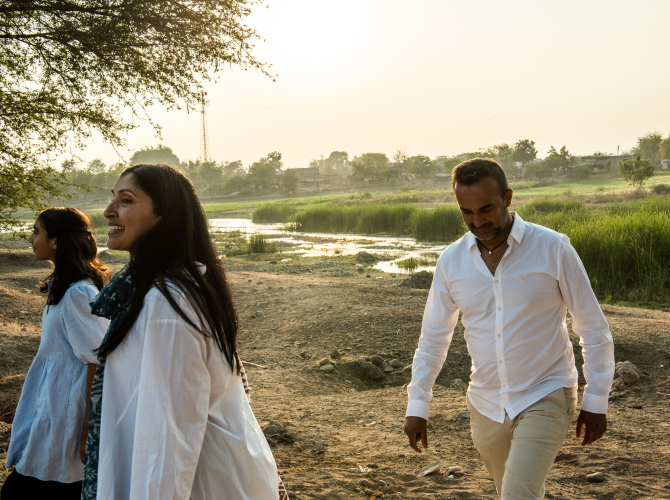


Why Organic cotton & How is it different to regular cotton?
Choosing to use organic cotton is not only beneficial for the environment, but it also guarantees a higher quality product. Organic cotton is grown without the use of harmful pesticides and chemicals, which can be harmful to both farmers and the environment. By choosing organic cotton, we are not only supporting sustainable and safe farming practices, but we are also ensuring that our products are of the highest quality. Organic cotton is softer and more durable than conventionally grown cotton, making it the ideal choice for those who value quality and sustainability. By using organic cotton, we are making a conscious effort to protect both the planet and our customers, and we believe that this is the only way forward for a better, more sustainable future.

Organic cotton is highly breathable, soft, and comfortable, making it the perfect choice for garments that sit close to the skin, such as underwear, sheets, bath towels and everyday basics. Unlike conventionally grown cotton, organic cotton is grown without the use of harmful pesticides and chemicals, making it a healthier and more sustainable choice for both the environment and our health. In addition to being hypoallergenic and thermoregulating, organic cotton is also incredibly durable and long-lasting, ensuring that our products are of the highest quality & offer ultimate comfort. Join us in making a difference and embracing a more sustainable and healthy lifestyle with organic cotton.
Organic Cotton for a Better Night's Sleep
Choosing organic cotton for your bedding can make a big difference to your sleep and general wellbeing. Not only is it safer, softer, and more comfortable, but it's also grown without harmful chemicals like pesticides, herbicides, and synthetic fertilisers. That means it's a healthier option for people who love to spend a lot of time in their beds (which, let's be real, is most of us!). Plus, it's hypoallergenic, so it's less likely to cause skin irritation or allergies. Since it is also more durable than conventional cotton as well as easy to care for, it will maintain its quality over time. Organic cotton farming is also more sustainable and environmentally friendly, so you can feel good about your choice as an environmentally conscious consumer.
Better for the environment, better for you
GOTS certified organic cotton is cotton that has been grown and produced according to strict organic standards set by the Global Organic Textile Standard (GOTS). This means that the cotton is grown without the use of harmful pesticides, herbicides, or synthetic fertilisers, and is processed without harsh chemicals or dyes. GOTS certification also requires that social and labor standards are met throughout the production chain. Choosing GOTS certified organic cotton means you're supporting sustainable and ethical practices while also getting a product that is safer for your health and the environment. In order to meet a GOTS certification we have to go through a pretty stringent process, from checking the soil we grow the cotton in, to the packaging we use to send our product out.
By choosing Bhumi, you’re making a positive impact on the planet. The below data shows the difference we’ve made to the environment since 2017. T

83,498,298 days of drinking water saved
1,471 Days of drinking water saved

1,588,499 km of driving emissions avoided
7 Miles of driving emissions avoided

757,529 m2 of land farmed without pesticides
141 sq.ft of land farmed without pesticides

Our Commitment to a Plastic-Free Future
A Bhumi, we are dedicated to creating a more sustainable future, and make plastic a thing of the past. That's why we use coconut shell buttons on our quilt covers (not plastic zippers or buttons here!) and use fully recyclable packaging. By choosing these materials, we are minimising our impact on the environment and reducing the use of harmful plastics.
Why we don't use bamboo, despite its ‘sustainable reputation’
Bamboo has been marketed as a sustainable and eco-friendly material due to its fast-growing nature and minimal need for pesticides and fertilisers. However, the truth is more complex. The production of bamboo fabrics involves heavy processing with chemicals that can have harmful environmental impacts. It’s been discovered that the dangerous chemicals involved in the manufacturing process of viscose bamboo aren’t always being properly managed, which is leading to health and environmental issues.
It is important to understand the full picture of bamboo's environmental and social impact before considering it a sustainable choice.
Conscious • Timeless • Ethical

